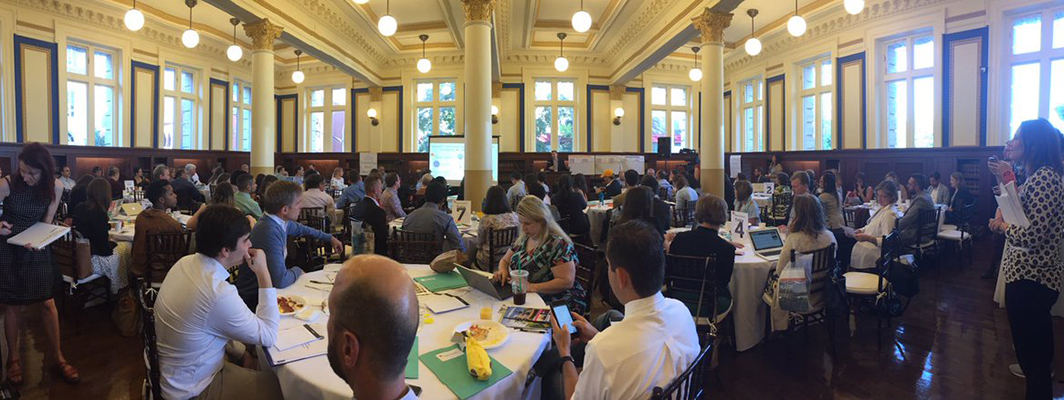
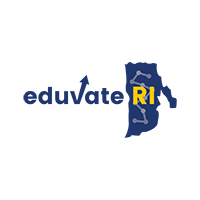
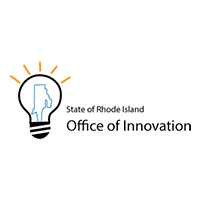
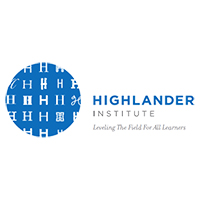
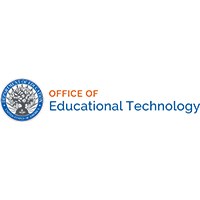
On September 21-23, 2016, Digital Promise and the U.S. Department of Education hosted the 2016 Education Innovation Clusters Convening (#EdClusters16) in Providence, R.I., with the Highlander Institute and Rhode Island Office of Innovation. #EdClusters16 brought more than 140 leading educators, ed-tech entrepreneurs, funders, researchers, and thought leaders to collaborate, work, and learn together.
Education Innovation Clusters (EdClusters) are local communities of practice that bring together educators, entrepreneurs, funders, researchers, and other community stakeholders to design, implement, iterate on, and disseminate breakthrough learning practices and tools. Thanks to generous support from the Ewing Marion Kauffman Foundation, Carnegie Corporation of New York, and State of Rhode Island, participants from more than 20 of these EdCluster regions joined national partners to:
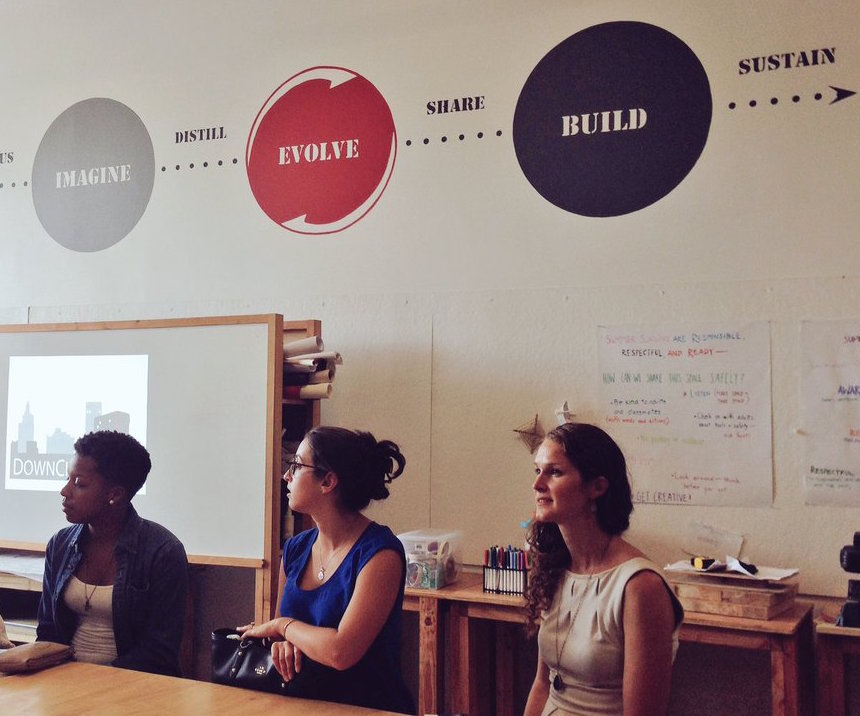 Take Stock of Where We Are by:
Take Stock of Where We Are by:
Support Research for Education Innovation
Explore How EdClusters Work and What they Do
Prioritize Equity
Leaders from six EdClusters shared highlights from their work over the past year as well as what’s next for their regions.
#edclusters16 @GinaRaimondo calling all innovators to RI! Let’s innovative to improve public education together. pic.twitter.com/0IGG3yduXv
— Joseph South (@southjoseph) September 22, 2016
Kentucky:
Jeff Hawkins of the Kentucky Valley Educational Cooperative described the 17-district consortium’s work to empower students to make positive changes in their Appalachian communities through an extensive web of partnerships and programs. (See a video snapshot of some of their work here.)
Pittsburgh: Sunanna Chand from the Pittsburgh Remake Learning Network shared the success of their Remake Learning Days, which held over 237 events, drew 30,000 participants from 270 unique zip codes, and garnered 97 commitments to support innovative teaching and learning in the region.
Rhode Island: Dana Borrelli-Murray from the Highlander Institute announced a new name, website, and formal partnership for the Rhode Island cluster: EduvateRI, which will support a state personalized and blended learning initiative. Rhode Island also emphasized the importance of involving state government in their efforts (the Rhode Island Office of Innovation, led by former Office of Educational Technology Director Richard Culatta, has been a key partner in EduvateRI). Rhode Island’s commitment to seeding education innovation shone throughout the convening — emphasized by a visit from Gov. Gina Raimondo, who told #EdClusters16 us that “innovation is a critical part of closing the achievement gap and giving all learners a chance.”
San Diego: Katie Martin of the University of San Diego’s Mobile Technology Learning Center highlighted the growth of their multi-sector partnerships, supported by Qualcomm and others in the region, to foster learning and innovation regional K-12 districts. (Check out a short video highlighting some of their work here.)
Two days have never been so productive. #EdClusters16 #sweduallstars #swedu… https://t.co/I1mpx8eK7B
— Sean Duffy (@dearmrduffy) September 23, 2016
Tucson:
Josh Schacter of CommunityShare explained the growing impact of the region’s unique platform to connect educators and students with “funds of knowledge” in the community, which has brought together more than 450 teachers, 2,500 students, and 360 community partners.
Boston: Eileen Rudden of LearnLaunch announced a new multi-sector partnership to scale personalized learning throughout Massachusetts, and discussed the funding approaches they have leveraged to support the expansion of the ed tech network in Boston.
@LearnLaunch has graduated 31 #edtech companies and has 120 mentors. @EileenRudden #edclusters16
— Michele Molnar (@EdWeekMMolnar) September 22, 2016
EdClusters leveraged an updated development rubric to assess their maturity and strategize next steps for moving ahead in four key areas:
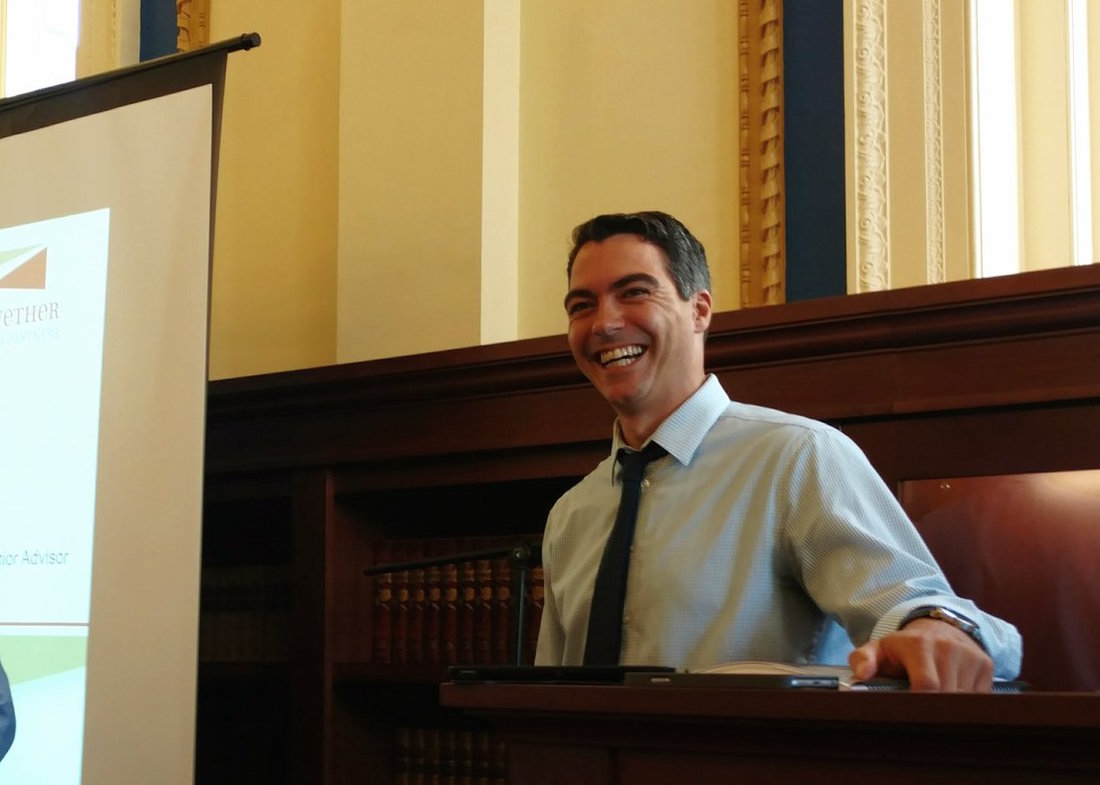 Indicators of Education Innovation in a City
Indicators of Education Innovation in a CityJason Weeby of Bellwether Education Partners shared a new index developed to assess education innovation in cities, using a set of quantifiable, standardized indicators. Steven Hodas, Senior Advisor for Education Innovation Clusters at Digital Promise, co-led the rich discussion that followed in which participants work-shopped the index and evaluated how their region fared, with an eye toward improvement.
Through both a panel and multiple breakout sessions, #EdClusters16 participants strategized new ways to analyze their networks, measure impact, and evaluate breakthrough learning tools, technologies, and practices.
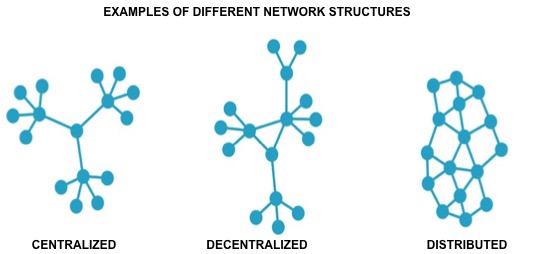 Edith Gummer from the Ewing Marion Kauffman Foundation presented research by Dr. Karen Stephenson on trust-based social network analysis. Many regions were excited about categorizing their network, identifying their cluster’s hubs, pulse-takers, and gatekeepers. In 2017, Digital Promise and the Kauffman Foundation will be supporting the developing of a common research agenda, instrumentation, and strategies for analyzing the strength and nature of connections in the regional EdClusters networks.
Edith Gummer from the Ewing Marion Kauffman Foundation presented research by Dr. Karen Stephenson on trust-based social network analysis. Many regions were excited about categorizing their network, identifying their cluster’s hubs, pulse-takers, and gatekeepers. In 2017, Digital Promise and the Kauffman Foundation will be supporting the developing of a common research agenda, instrumentation, and strategies for analyzing the strength and nature of connections in the regional EdClusters networks.
Cynthia Leck of the Center for Public Research and Leadership shared new impact measures for harbormaster/intermediaries and how the approach evaluating that impact within a network.
@LearnLaunch has graduated 31 #edtech companies and has 120 mentors. @EileenRudden #edclusters16
— Michele Molnar (@EdWeekMMolnar) September 22, 2016
Aubrey Francisco of Digital Promise discussed the approaches districts are taking to evaluate practices and products, and how EdCluster networks can better foster research collaborations.
Talking rapid cycle evaluation with @OfficeofEdTech at #edclusters16 pic.twitter.com/xXih5jVTGO
— Erin Mote (@erinmote) September 23, 2016
Alex Resch of Mathematica and Katrina Stevens and Fatima Jibril of the U.S. Department of Education shared new tools for empowering districts to undertake rapid cycle evaluations of ed tech tools and products to better inform practice and procurement. EdCluster participants discussed how developers, educators, and researchers can get on the same page, especially through shared language. They also discussed the ways in which these collaborative cross-sector partnerships can support the building of a research mindset and capacity in schools.
Steve Ross of Johns Hopkins University discussed the foundation of ed-tech pilot evaluations, the evolution of assessment mindsets and approaches in education, and how to establish rigor in a range of evaluation contexts.
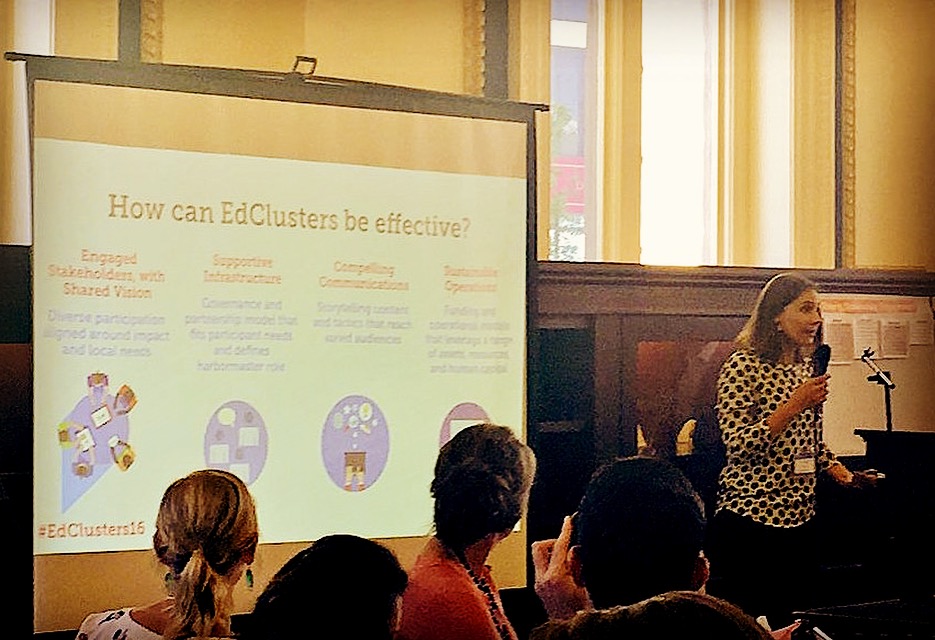
Over the past year, Digital Promise has worked to identify and codify the key elements of an effective EdCluster. The result is four toolkits, which were previewed at #EdClusters16, to support EdClusters as they mature and scale. Cricket Fuller, Project Director for Education Innovation Clusters at Digital Promise, explained that these toolkits build upon the best practices and frameworks in the field and draw from surveys and interviews from EdClusters. Through a series of breakout sessions, participants dove into those tools to collaborate on ways to support their individual regions and the EdCluster network as a whole.
Eileen Rudden (LearnLaunch) and Octavia Abell (Rhode Island Office of Innovation) discussed various partnership models for EdClusters that can help establish a Supportive Infrastructure. Participants leveraged two Digital Promise tools to assess which governance structures best meet their needs and support their goals. While most EdClusters come together under informal umbrellas, they have increasingly looked to formalize and brand their partnerships. Several EdClusters are even exploring public-private partnerships as they collaborate with government to scale education innovation initiatives in the region. The discussion of partnership models was a new one for the #EdClusters convenings and brought to light new approaches for working together in our regions.
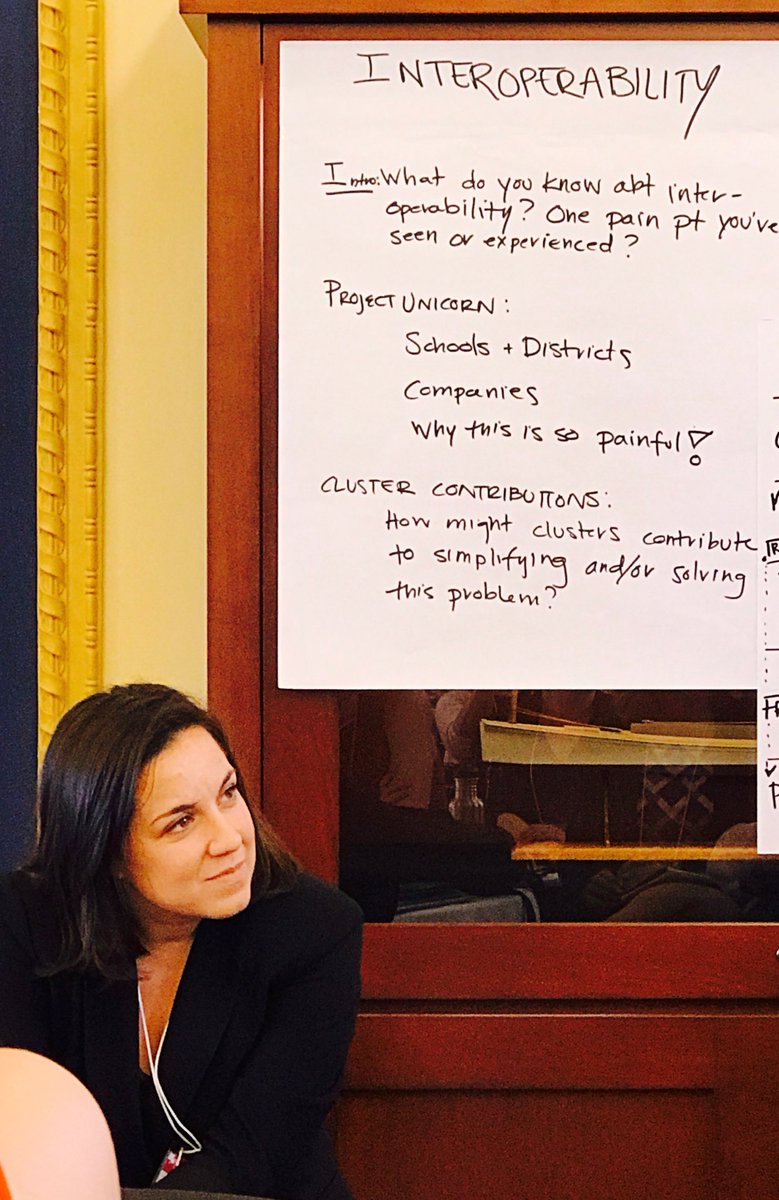 Many EdClusters don’t have dedicated funding sources for their cluster staff or operations. Through a breakout session on Sustainable Operations led by Digital Promise’s Sara Schapiro, participants identified unique sources of funding to meet their needs – whether traditional grants or in-kind donations of space and supplies. A Digital Promise tool helped them consider how to craft their asks to align with donor and EdCluster goals. Many EdClusters shared pain points but also creative approaches to sustaining their work.
Many EdClusters don’t have dedicated funding sources for their cluster staff or operations. Through a breakout session on Sustainable Operations led by Digital Promise’s Sara Schapiro, participants identified unique sources of funding to meet their needs – whether traditional grants or in-kind donations of space and supplies. A Digital Promise tool helped them consider how to craft their asks to align with donor and EdCluster goals. Many EdClusters shared pain points but also creative approaches to sustaining their work.
Ryan Coon of the The Sprout Fund walked participants through a Storytelling exercise to distill communication goals and targets, identify the storytelling assets in their community, and evaluate the best modes for Compelling Communications.
Matt Hannigan, also of the Sprout Fund, and Dana Borrelli-Murray of the Highlander Institute, worked with a Digital Promise Stakeholder Engagement tool to help EdClusters identify, categorize, and target outreach to the stakeholders in their region.
David Fu and Malliron Hodge of 4.0 Schools and Katie Boody of the Kansas City Lean Lab shared ways to Program your Cluster with Shark Tanks, Classes, Startup Weekends, and more.
Dana Borrelli-Murray of the Highlander Institute and Rich Overmoyer and Chelsea Burket of Fourth Economy Consulting, discussed the recently-completed economic impact study for the Rhode Island EdCluster and what implications other clusters can consider relevant to regional Economic Development.
Erin Mote of InnovateEDU and Brooklyn LAB School and Christina Quattrocchi of EdSurge intrigued participants with a breakout session on “Project Unicorn” in which they asked participants to explore the challenges and best practices of data interoperability through a newly-developed rubric.
Learned about the great work of @TheLeanLab @KatieBoody today! Hope to work together w/ @HighlanderInst in the future. #edclusters16
— Roshni Mirchandani (@roshnimirchi) September 23, 2016
Patti Constantakis and Susanne Nobles of Digital Promise as well as Karisa Tashijian of the Providence Public Library discussed ways to bring marginalized adult learners into the EdCluster ecosystem.
What will the future of education bring? Exploring today with mind-blowing #VR @southjoseph @SethAndrew @OfficeofEdTech @BrownUniversity pic.twitter.com/W3iqo8ghTR
— Julia Rafal-Baer (@Juliarafalbaer) September 22, 2016
On Wednesday ahead of the convening, attendees also saw EdCluster partnerships and programming at work in Rhode Island through a series of site visits. They learned from a range of EduvateRI partners — from blended and personalized learning elementary schools to computer science high schools, from community-based design firms to local social enterprise accelerators, from cooking oil-powered buses to university-led virtual reality centers.
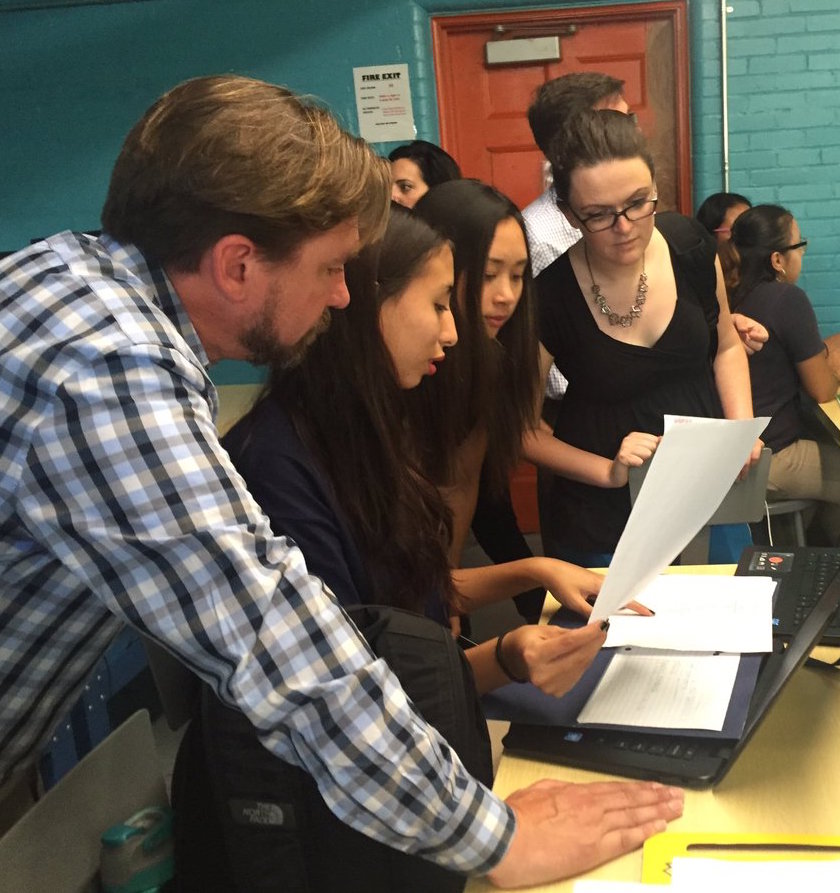
A driving theme for #EdClusters16 was equity – noticing which voices were missing and figuring out how to bring more voices into the fold. We asked hard questions of each other and of ourselves. We inspired each other with stories of inclusive networks, breaking down barriers, and uncovering the strengths in all communities. We challenged each other — to move outside our comfort zones, to create safer spaces, to put our students at the center of our work, not just on the receiving end. And most of all, we committed. We committed not just to “inviting people to the table, but bringing the table to the people.” We committed to put equity at the heart of our work, both in our individual regions and as a primary goal for the national #EdClusters network.
Every person at #edclusters16 should be thinking about / working on making innovation work more equitable. We can’t rely on a few people
— Jessica Brown (@kmjlbrown) September 22, 2016
The question of equity wound its way through many discussions at #EdClusters16, but the conversation was most visible in a panel moderated by Sunanna Chand of Pittsburgh’s Remake Learning Network, who asked panelists: How can EdClusters address issues of inequity?
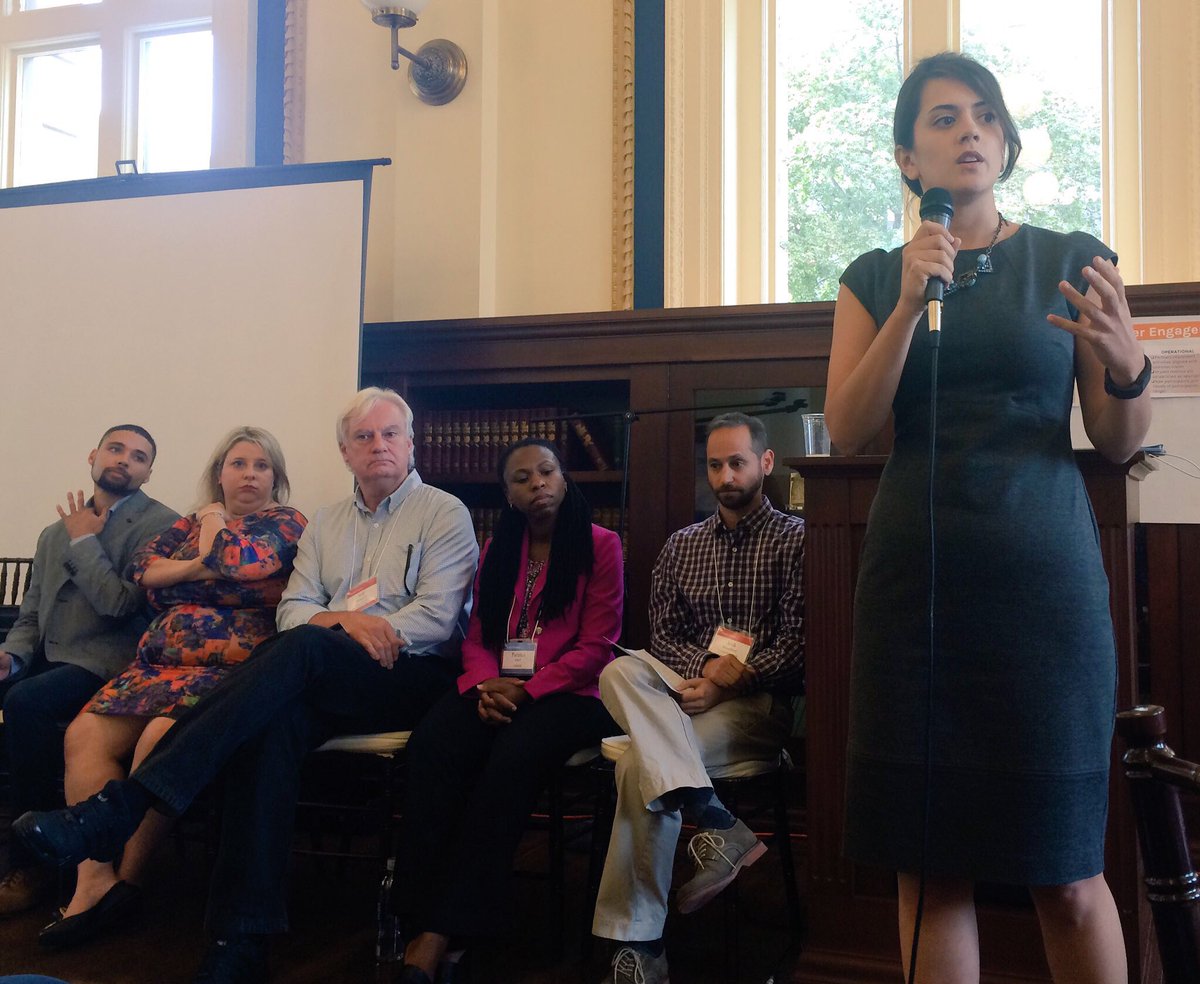 Josh Schacter discussed how CommunityShare is giving kids in Tucson more equitable access to social capital and real-world learning experiences — and asked attendees to consider how to forge those connections in their own regions. Equity, he said, needs to not just be one panel in a conference, but it “needs to be part of every conversation.”
Josh Schacter discussed how CommunityShare is giving kids in Tucson more equitable access to social capital and real-world learning experiences — and asked attendees to consider how to forge those connections in their own regions. Equity, he said, needs to not just be one panel in a conference, but it “needs to be part of every conversation.”
Fatima Jibril of the U.S. Department of Education talked about the difference between access and equity. She encouraged people to have the uncomfortable conversations required to build inclusive — not just open — networks.
Erin Mote of the Brooklyn LAB School and InnovateEDU challenged attendees to be honest about their failures and vulnerabilities, in order to build trust and resiliency.
.@erinmote “Put Ss & Ts at the center of your design.
Stop building things & testing them w/Ss & Ts after it’s fully built.”#edclusters16— Michael Klein (@michaelfklein) September 23, 2016
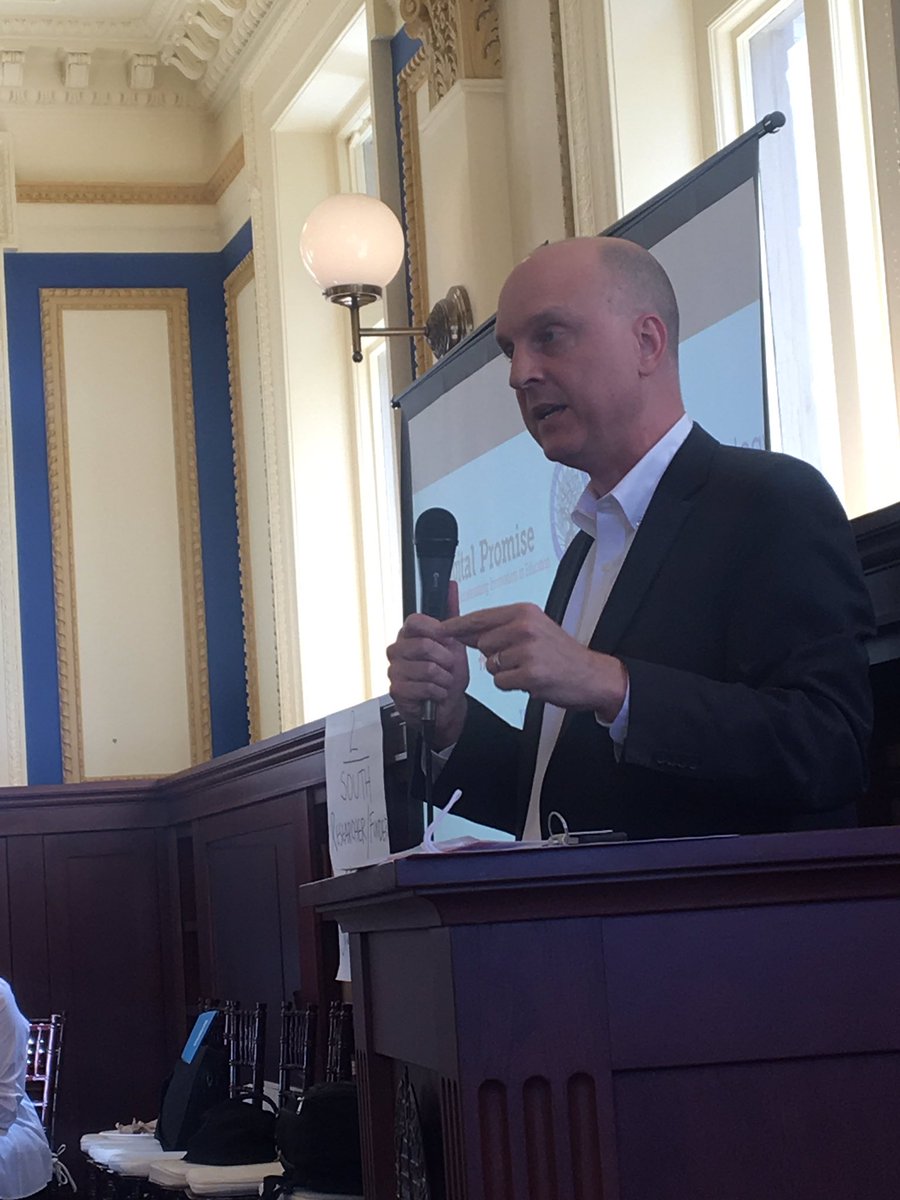
Rhode Island’s Commissioner of Education Ken Wagner, in remarks and Q&A with attendees, brought home a similar point, reminding us that past failures in education innovation came about because they ignored engagement with families. Those projects were “experimenting on, not with.” He urged us to remember that successful innovation isn’t something that we do to parents, teachers, and students, but something that happens when we involve them in the co-creation process.
Jeff Hawkins shared the perspective that drives his team’s work in rural Kentucky — operating from a position of abundance rather than scarcity, working in the community to “reveal the strengths that are there.”
Josiah Gilliam of Pittsburgh’s Homewood Children’s Village and My Brother’s Keeper initiative urged everyone that equity isn’t just the right thing to do, it’s the smart thing to do. Soon we will be in a “majority minority” country with a more diverse population than ever before, he reminded everyone. If we aren’t designing with all stakeholders in mind, we are missing huge opportunities.
If things aren’t equitable, they aren’t innovative @DigitalPromise #edclusters16
— Javier Alfonso (@jalfonsoKCPS) September 23, 2016
How do we ensure that equity is at the forefront of our work? Measure it. #edclusters16
— Octavia Abell (@octavia_abell) September 22, 2016
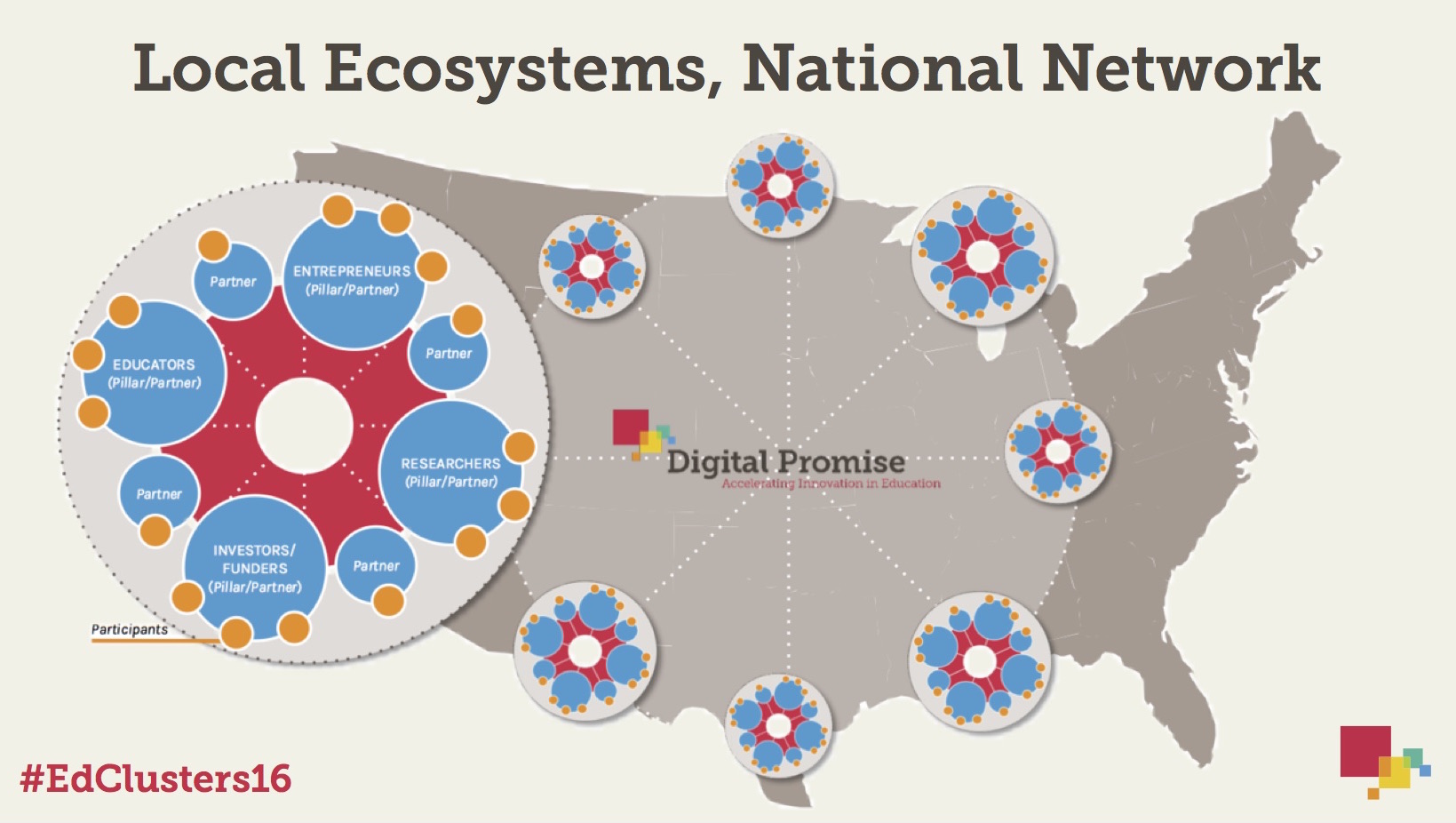
The group of leaders who came to Rhode Island are at the forefront of education innovation, with an eye forward the future – both in their EdCluster region and for the country’s education system. Conversations throughout the convening – from panel discussions to informal chats over breakfast – focused on driving forward with greater equity and impact. Friday culminated with a design studio led by the Business Innovation Factory that asked participants to strategize around this key question from Digital Promise: How can EdClusters work together more on a national scale? How can EdClusters connect more throughout the national network?
The post-its went up, the excitement level rose, and the ideas flew — from virtual reality tours to an #EdClusterBus study tour, from regional summits to story engines, from Blue Apron toolkits to awards and graduations. As participants brainstormed through the design-thinking process, key ideas bubbled to the surface that will shape the agenda for Digital Promise and the EdClusters network over the next year.
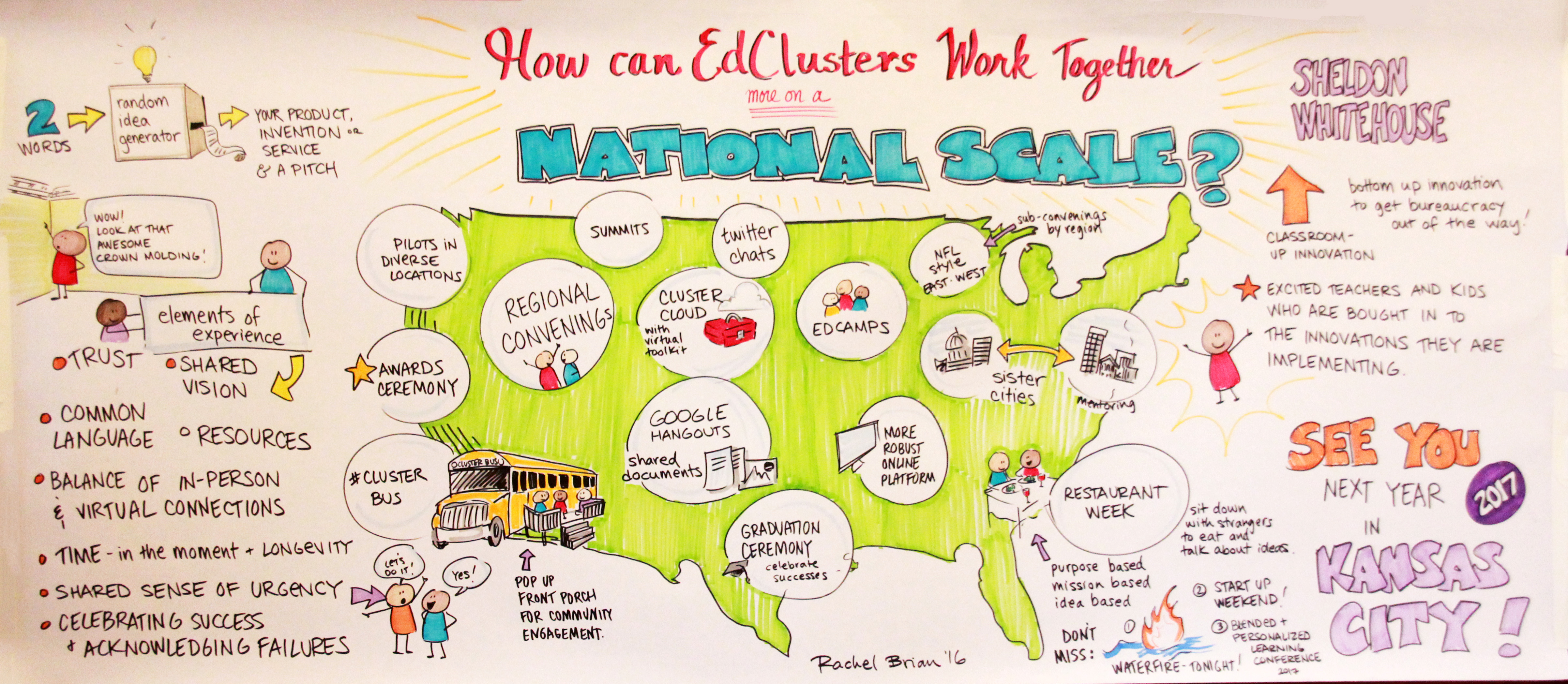 In his remarks at the close of the session, Senator Sheldon Whitehouse acknowledged the power of the people and ideas in the room to prepare students for the 21st century in which “citizens must be more than good workers.” To that end, he encouraged participants to empower nationwide, bottom-up innovation “as opposed to top down and foundation out.”
In his remarks at the close of the session, Senator Sheldon Whitehouse acknowledged the power of the people and ideas in the room to prepare students for the 21st century in which “citizens must be more than good workers.” To that end, he encouraged participants to empower nationwide, bottom-up innovation “as opposed to top down and foundation out.”
On that note, many #EdClusters16 attendees geared up for Startup Weekend Education in Providence. (Check out #swedupvd and @SWeduPVD on Twitter for highlights.)
So, what’s next?
We’re looking forward to reconvening at #EdClusters17 in Kansas City next fall.
SIGN UP HERE TO GET NOTIFICATIONS OF UPCOMING #EDCLUSTERS EVENTS, INCLUDING #EDCLUSTERS17.
Are you doing the work of an Education Innovation Cluster? Want to learn more about the network, this work, the convening, or the Digital Promise EdClusters toolkits? Contact Cricket Fuller at cricket@digitalpromise.org.
RT @husslington: how does innovation spread? well, #innopie traveled from @TheBIF Summit to #edclusters16 via @rec54 pic.twitter.com/vvCp8PA475
— Richard Culatta (@rec54) September 23, 2016